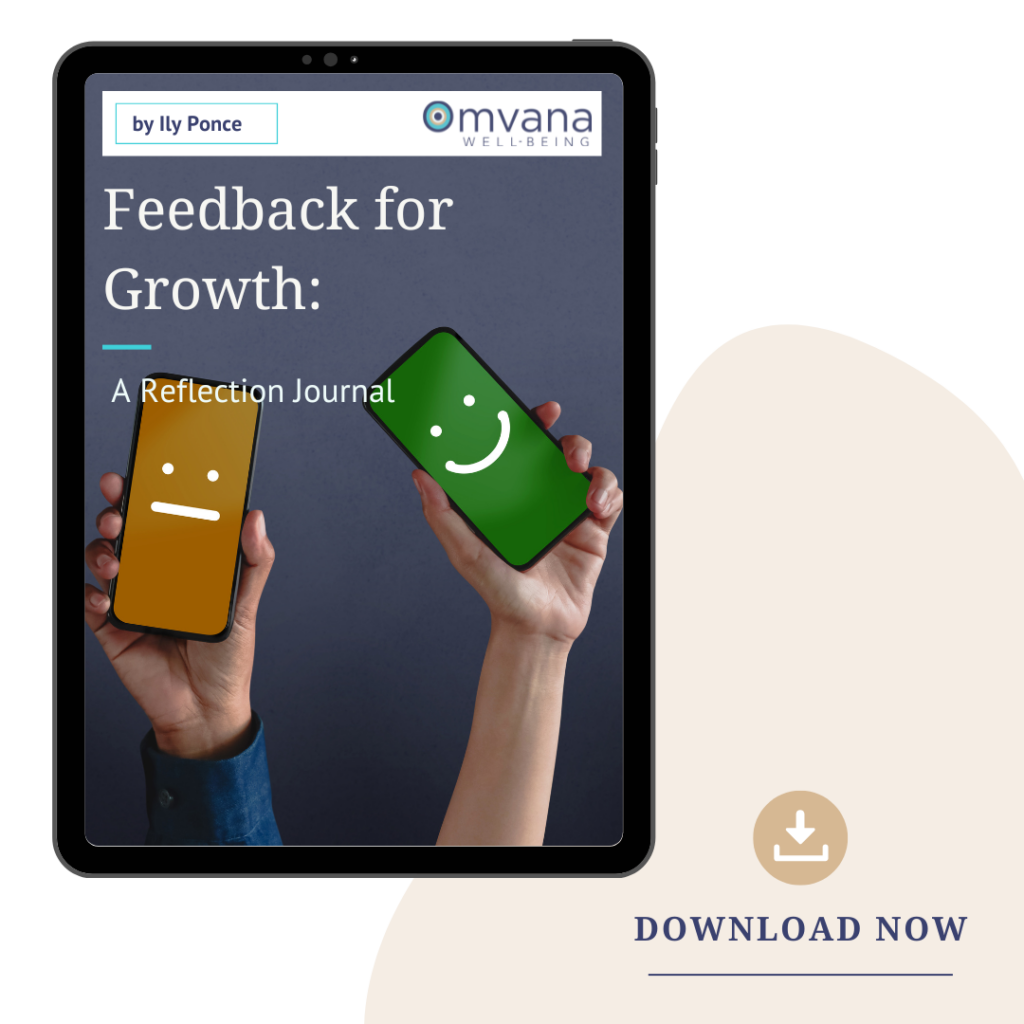How Can Feedback Propel Your Growth?
Does feedback make you uneasy? It’s a common feeling—feedback often challenges our sense of security, leaving us feeling vulnerable.
But here’s the truth: feedback isn’t criticism—it’s an opportunity to grow.
Studies show that 92% of employees say constructive feedback improves their performance, yet 70% of leaders avoid giving it because they fear conflict. Why? Because feedback often feels personal, making us question our abilities and worth. In this post, we’ll explore why feedback feels uncomfortable, how it connects to the Root Chakra, and practical steps to help you reframe it as a powerful tool for growth.

Why Does Feedback Feel So Hard?
Feedback can feel challenging because it touches on our insecurities. It often stirs thoughts like:
- “What if I’m not good enough?”
- “What if this means I’ve failed?”
These fears are deeply tied to the Root Chakra, the energy center at the base of your spine.
The Root Chakra governs feelings of safety, security, and stability. When balanced, it grounds you, making you feel resilient and capable of embracing constructive input. But when it’s imbalanced, it can lead to fear, defensiveness, and a resistance to growth.
To embrace feedback, you need to strengthen your foundation—both energetically and mentally.

Reframing Feedback: A Pathway to Growth
The key to embracing feedback is reframing it. Here’s how:
Anchor Yourself
Use a grounding affirmation like: “Feedback is not criticism; it’s an opportunity to grow.” Visualize your Root Chakra glowing red, reminding you that you are safe and capable of growth.
Presuppose Positivity
Assume feedback comes from a place of support, even if it stings. Tell yourself: “This feedback is here to help me grow.”
Break It Down
Feedback can feel overwhelming when it’s vague or broad. Focus on one actionable takeaway at a time. For instance, if you’re told to improve your communication, start with practicing clarity before tackling tone or delivery.



A Grounding Exercise to Reframe Feedback
Here’s a quick practice to help you reframe feedback constructively:
- Pause and Breathe
When receiving feedback, take a moment to pause. Imagine your Root Chakra glowing red, anchoring you in stability and resilience. - Reflect on the Insight
Ask yourself: What actionable lesson can I take from this feedback? How can it help me grow? - Anchor the Lesson Choose a word like growth or resilience to remind yourself of the strength feedback brings. Use it as your grounding mantra.
Affirmation to Ground You
Take a deep breath and repeat:
“Feedback fuels my growth and unlocks my potential.”
Let this affirmation anchor you the next time you receive feedback, grounding you in confidence and openness.
Feedback isn’t about pointing out flaws—it’s about highlighting potential.
It’s a mirror that reflects opportunities for improvement and a tool that guides you toward growth.
The next time you receive feedback, pause, take a deep breath, and remind yourself: This is not about my worth—it’s about my evolution.
Want to dive deeper? Download our free journal, “Feedback for Growth: A Reflection Journal,” to explore exercises, affirmations, and prompts that will help you turn feedback into your greatest superpower.

Editorial Sources:
- 92% of employees say constructive feedback improves performance: This statistic is cited from a study conducted by Zenger/Folkman, published in their article “Your Employees Want the Negative Feedback You Hate to Give” (Harvard Business Review, 2014). Read the Article Here
- 70% of leaders avoid giving feedback due to fear of conflict: This statistic comes from Harvard Business Review’s findings on leadership and feedback hesitancy. Original Source
- Ken Blanchard Quote: “Feedback is the breakfast of champions.” This quote is widely attributed to Ken Blanchard, a leadership expert and co-author of The One Minute Manager.
- Concepts of breaking feedback into actionable steps and presupposing positivity are drawn from practices in Neuro-Linguistic Programming (NLP) and positive psychology.







